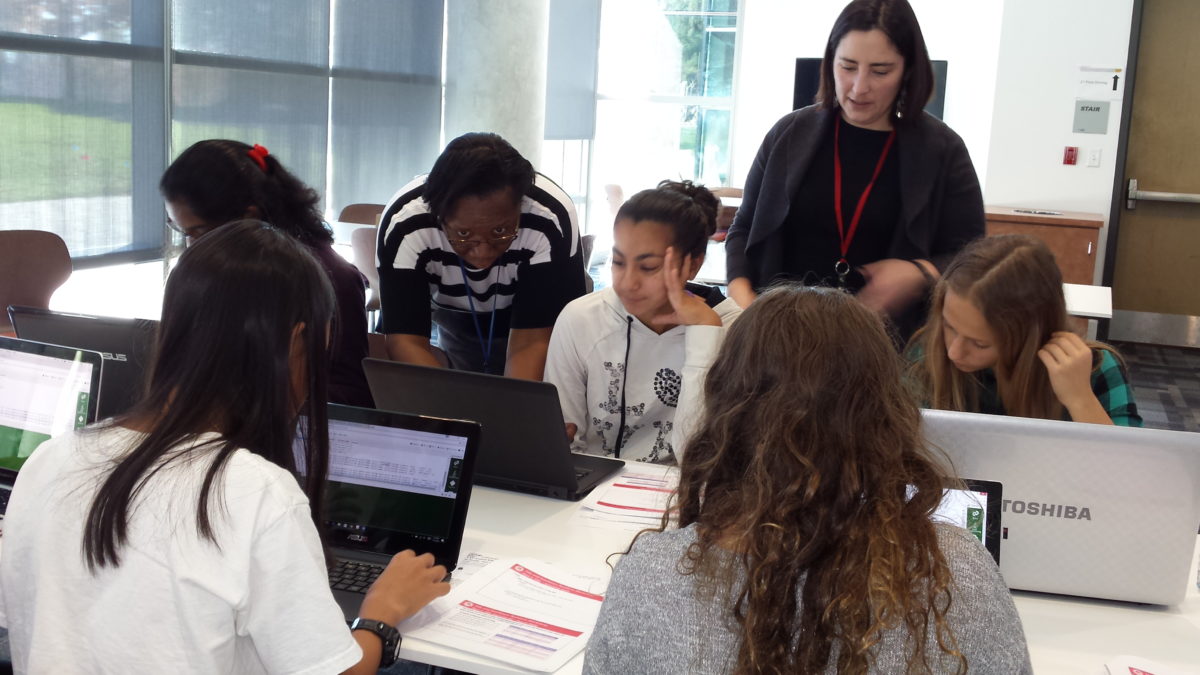When Christopher Mathews was seven years old, his parents brought him an Atari 2600. The rest is history.

Chris Mathews. (Courtesy photo)
Today, Mathews, who lives in Wilmington, works as an executive director and application developer lead at JPMorgan Chase. We had a chance to talk to the self-proclaimed “kung fu coder” to find out more about why he loves programming and what advice he has for those just starting out.
If you’re interested in getting a job with JPMorgan Chase, the company will be at our tech jobs fair NET/WORK on March 30 at 1313 Innovation in Wilmington. Tickets are $10 or for $5 for the happy hour.
Get tickets
How’d you get interested in tech? How old were you?
My parents bought me an Atari 2600 when I was seven years old and a Commodore 64 when I was eight. The Atari was the earliest memory I have engaging with technology. The Commodore 64 was my first experience with anything programming-related. It wasn’t something I actively recognized that I was doing, but to use a Commodore 64 for pretty much anything (including games), you had to have some basic programming skill.
Did you have any early mentors or teachers?
No particular mentors, or teachers, stood out to me. I didn’t have much access to people working in technology fields. I did take a couple programming courses in high school (BASIC and Pascal), but that was the extent of my exposure prior to college [at the University of Delaware].
What did you think about coding when you first started in tech? Can you recount any early challenges you had?
I knew almost implicitly that I wanted to be a programmer from an early age … pretty much as soon as I realized programming was a thing that could be a job. I spent a lot of time playing video games in my teens and progressed into consuming all the information I could about game developers and how games were created. My artistic skills are a bit … lacking … so I decided that I would focus on the programming side of the equation.
How did you land your first job in tech?
Landing the first job is always the most difficult. My first job was a referral from my best friend’s mom (thanks Ayesha!) to a local consulting company. It was really just a three-month trial because they weren’t even sure if they needed a second programmer on staff. It was primarily working with Microsoft Access databases and after nine months I moved onto full-time Java development.
Why have you stayed in the tech world?
For me programming is really just solving increasingly more difficult puzzles. Sometimes those puzzles take the form of code, sometimes they take the form of physical infrastructure constraints and sometimes they take the form of organizational people challenges. I enjoy solving problems and I especially enjoy the immediate feedback that writing code provides. There aren’t many other activities that give as satisfying of a feedback loop as the Red-Green-Refactor cycle in programming.
If you could have any tech job, what would it be?
I actually really like my current role at JPMorgan Chase. I still remain a very hands-on coder but I also get the opportunity to coach and work directly with teams/developers across the world … all from the tiny state of Delaware. 🙂
Any advice for someone just starting out?
Read, watch and consume information. When I first started in the industry, I was buying and consuming about two to four technology books a month, for a few years. This is where I spent most of my free time in the beginning. It was expensive (books weren’t cheap at the time) and time-consuming but I felt I had so much to learn, there was no other way. Today, there is an immense amount of information available for free that I see so many people early in their career underutilizing.
Join our growing Slack community
Join 5,000 tech professionals and entrepreneurs in our community Slack today!
Donate to the Journalism Fund
Your support powers our independent journalism. Unlike most business-media outlets, we don’t have a paywall. Instead, we count on your personal and organizational contributions.

When global tech association CompTIA spun off its nonprofit arm, the TechGirlz curriculum went dark

Dismantling the Dept. of Education could steer more people to nontraditional career paths

How should tech firms be taxed? Maryland is the latest test case

